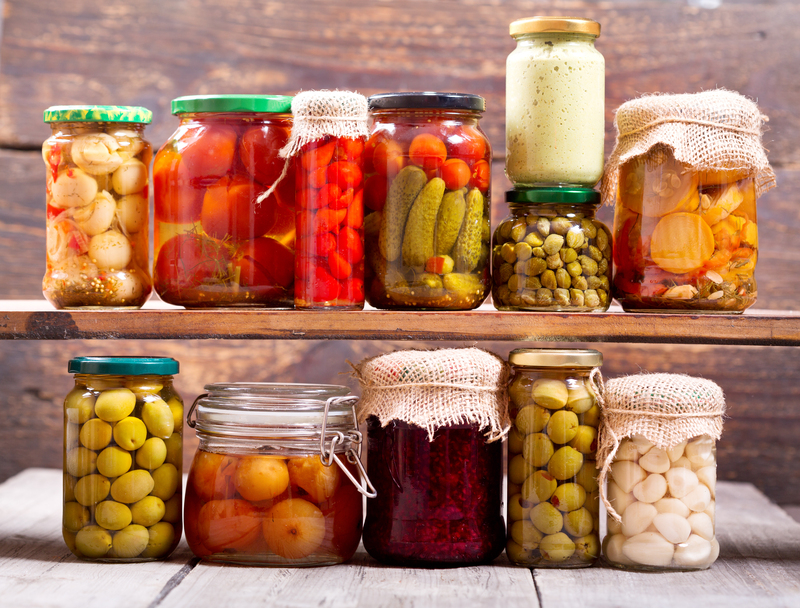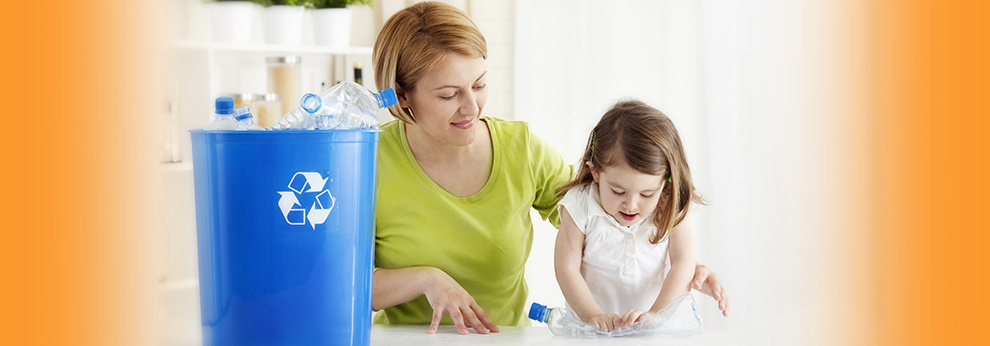Innovative Approaches to Trim Your Plastic Waste
Posted on 26/06/2025
Innovative Approaches to Trim Your Plastic Waste
As growing concerns over environmental sustainability and plastic pollution become more prominent, individuals and communities worldwide are seeking inventive strategies to reduce plastic waste. While traditional methods like recycling and reusing are valuable, forward-thinking solutions are making substantial impacts today. This comprehensive guide explores modern ways to decrease plastic usage, features ground-breaking technologies, and offers actionable changes you can implement to minimize your plastic footprint.

Why Reducing Plastic Waste Matters
Plastic pollution is a global crisis: Over 300 million tons of plastic are produced every year, with at least 8 million tons ending up in our oceans. The result? Threatened marine ecosystems, contaminated food chains, and microplastics in the water and air we rely on. The urgency to innovate and act responsibly has never been more critical.
- Environmental Impact: Plastic waste disrupts wildlife and habitats, causing long-term ecological damage.
- Health Concerns: Microplastics found in water, air, and the food we consume can pose significant risks to human health.
- Sustainable Development: Trimming plastic waste aligns with the United Nations' Sustainable Development Goals to promote responsible consumption and production.
How You Can Make a Difference
Every small step you take to limit your plastic usage contributes to the larger mission. Here are some innovative plastic waste reduction strategies that go beyond just recycling and reusing.
1. Embrace Plastic-Free Alternatives
- Biodegradable Packaging: Swap traditional single-use plastics for biodegradable options made from cornstarch, mushroom roots, or seaweed. These materials break down without leaving harmful residues.
- Reusable Containers and Wraps: Invest in beeswax wraps, glass jars, silicone bags, and stainless steel containers instead of disposable zipper bags and plastic wraps.
- Compostable Cutlery and Plates: Choose compostable utensils, plates, and straws at parties, picnics, and on-the-go meals.
Key takeaway: Opting for alternatives designed to return safely to the earth is a direct, effective way to cut your household's plastic waste.
2. Leverage Technology for Smarter Consumption
Smart Refill Stations
Many supermarkets and independent shops now offer refill stations for products like shampoo, laundry detergent, and pantry staples. Bring your own reusable containers and fill up with just what you need--eliminating unnecessary packaging and trimming plastic waste at the source.
- Find Local Refill Shops: Search community forums or dedicated apps for the nearest plastic-free refills.
- Join Community Initiatives: Get involved with local zero-waste groups hosting refill events or swap meets.
Apps and Tools for Tracking Waste
There are several digital solutions designed to help you monitor and reduce plastic waste:
- PlasticDiet: Tracks daily plastic consumption and recommends personalized ways to reduce single-use items.
- MyLittlePlasticFootprint: Helps you measure, visualize, and decrease your plastic footprint over time.
Integrate technology into your sustainability routine to stay motivated and accountable.
3. Support Innovative Startups and Products
Some of the most remarkable progress in the battle against plastic pollution comes from startups and companies that are revolutionizing how products are made, used, and disposed of.
Edible and Dissolvable Packaging
Imagine eating your yogurt and having the spoon and cup disappear naturally--companies like Loliware and Notpla have made this a reality with edible and water-soluble packaging made from seaweed and other organic materials. These innovative plastic alternatives are disrupting traditional packaging industries and providing eco-conscious consumers with expanded choices.
Plastic-Eating Enzymes and Bacteria
Researchers are developing bioengineered enzymes and bacteria capable of breaking down plastics at a molecular level. These scientific breakthroughs hold promise for both industrial-scale waste management and home composting aids.
- Enzyme-Enhanced Recycling: Certain enzymes can accelerate plastic decomposition, turning waste into valuable materials for reuse.
- Bacterial Solutions: Some bacteria are being genetically engineered to consume specific types of plastics, offering new hope for large-scale cleanups.
4. Redesigning Everyday Habits
Adopt a Zero-Waste Lifestyle
Moving towards a zero-waste way of living means analyzing every purchase, meal, and disposal habit. Ask yourself, "Is this item necessary? Could it be replaced with a more sustainable version?"
- Bulk Buying: Purchase food and goods in bulk, using your own containers to avoid unnecessary packaging.
- DIY Cleaning Products: Homemade cleaners can be stored in glass bottles and jars--no plastic bottles needed.
- Repair, Don't Replace: Mend broken items or upcycle materials to give them new life instead of throwing them away.
This systematic overhaul can be daunting, but even small changes steadily reduce your plastic waste output.
Choose Products With Minimal or Recyclable Packaging
- Support brands that use compostable, recyclable, or minimal packaging.
- Opt for items advertised as "naked" or "package-free."
- Use your influence as a consumer--write to companies urging them to reduce unnecessary plastic in their products.
5. Harness the Power of Community
Organize and Participate in Plastic-Free Challenges
Global movements such as Plastic Free July and #BreakFreeFromPlastic inspire millions each year to audit and reduce their plastic consumption. Engaging with neighbors, friends, or coworkers not only amplifies impact but spreads innovative ideas for trimming plastic waste.
Community Cleanups and Audits
- Beach and Park Cleanups: Join or organize community events to collect and document plastic debris--a powerful awareness tool.
- Plastic Audits: Analyze the types of plastics most commonly found in your area, then develop local strategies to substitute or eliminate them.
Advocate for Policy and Corporate Change
- Support Single-Use Plastic Bans: Petition local governments and support legislation aimed at limiting or banning single-use plastics in your city or country.
- Vote With Your Wallet: Choose businesses with verifiable sustainability credentials and plastic reduction commitments.
6. Make Sustainable Swaps in High-Impact Areas
Zero-Waste Personal Care and Beauty
- Use soap bars, shampoo bars, and refillable deodorants over products in plastic bottles.
- Purchase reusable razors and bamboo toothbrushes instead of plastic versions.
- Switch to fabric-based or compostable cotton swabs and rounds.
Plastic-Free Grocery Shopping
- Bring reusable mesh bags for produce and canvas bags for groceries.
- Choose milk, juice, and sauces in glass or cardboard cartons, not plastic jugs.
- Purchase from farmers markets, which often use less packaging and support local agriculture.
Pro tip: Make a list of swaps you've already made and those you'd like to try--it provides clarity, focus, and a sense of accomplishment as you progress.
7. Innovating at Home: Plastic Waste Reduction Projects
Get creative with what you might otherwise throw away! Many plastic items can have a second life as:
- Upcycled Planters: Use old containers for starting herbs or flowers.
- Organizers: Repurpose food packaging tubs for small tools, craft supplies, or office items.
- DIY Storage: Stackable yogurt pots or bottles can be transformed into clever, functional storage solutions.
Encouraging children and family members to participate makes it both fun and educational.

The Future of Plastic Waste Reduction
Emerging Large-Scale Solutions
Beyond daily life, industry and technology continue to develop radical ways to minimize plastic waste:
- Circular Economy Models: Businesses re-imagining product life cycles as circular systems that prioritize reuse and remanufacturing.
- Advanced Sorting Facilities: AI and robotics to improve the accuracy and efficiency of recycling plants.
- Eco-Labeling: New labeling systems that make it easy for consumers to choose genuinely sustainable products and packaging.
- Ocean Cleanup Initiatives: Autonomous river and ocean-cleaning devices collecting plastics before they reach deep waters.
What You Can Do Next
Start with awareness, move to action:
- Conduct a home "plastic audit" for one week--track every item used and thrown away.
- Make a commitment to introduce at least one new non-plastic habit each month.
- Share your progress and discoveries with friends, family, or via social media to multiply the effect.
Conclusion: The Power of Innovative Plastic Waste Reduction
Innovative approaches to trim your plastic waste are accessible, varied, and effective when grounded in intention and creativity. Whether you're adopting new technologies, supporting forward-thinking products, joining local initiatives, or experimenting with upcycling at home, every move away from reliance on plastic counts. Start today: analyze your daily habits, make informed choices, and champion change--because together, we can transform the future of our planet.
Remember: Innovative plastic waste reduction isn't just a trend; it's a necessity for a healthier, greener world. Empower yourself, inspire others, and be part of the solution!



